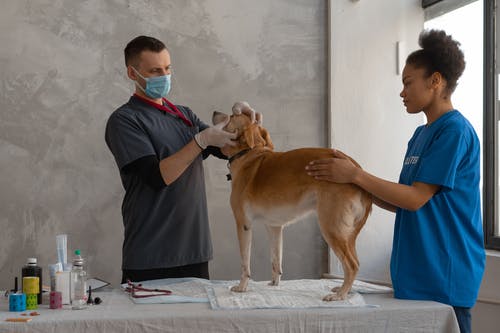Felines are susceptible to both internal and external parasites. Cat parasites might not make for a good dinner discussion, but you should know them and discuss them with your vet. These invading invaders may live in your cat’s body without your knowledge up until his symptoms increase.
Vets are constantly available to provide further info on cat parasites so that you can secure your cherished cat from exposure.
Internal Parasites of Cats
Cats are susceptible to several common internal or digestive tract parasites. Unattended, they can cause health and long-term problems, regardless of their evident security. These parasites consist of roundworms, tapeworms, hookworms, and heartworms.
- Kitties are frequently affected by roundworms. They can grow quickly and impact the growth of your feline. Digestive roundworms are responsible for digestive distress, diarrhea, and throwing up. Infected cats can spread roundworms to other felines through their feces.
- Tapeworms in felines are white, flat worms that can reach an optimum length of 20 inches. Numerous pet owners might initially discover their existence in the form of rice-like pieces in the feces or vomit of their pet. Tapeworms require an intermediate flea host. A cat may end up being sick by consuming infected fleas or excrement.
The tapeworm type Echinococcus is zoonotic, suggesting that humans (and children in particular) are vulnerable to contracting tapeworms from their pets.
- Heartworm is a long, white, spaghetti-like worm that lives in the chambers of a cat’s heart (and, in some cases, lungs). Heartworm is transferred to a feline by mosquito bite, which subsequently transports heartworm larvae into circulation. Heartworms can continue to increase within a feline’s body and show lethal. Numerous felines do not display heartworm signs until they collapse and drop dead.
- Among the most extensive parasites affecting felines is the hookworm. This 1-1 1/2-inch parasite connects to the intestinal wall and feeds on blood. If not discovered in time, lots of cats will get anemia. Some pet owners find the existence of hookworm owing to skin problems or illnesses where the parasite has burrowed through the skin’s surface area.
Security Against Cat Parasites
External parasites like ticks, leptospirosis, and many other parasites may ruin a feline’s health. Understanding cat parasites is vital for preventing your pet from contracting internal parasites or illnesses transmitted by parasites.
- Please administer flea, tick, and heartworm cat & dog vaccinations to your pet, as they are intermediary carriers of numerous illnesses and internal parasites.
- Kittens are particularly prone to parasites; for that reason, they must have a thorough assessment, deworming medication, and all required vaccinations and boosters.
- Indoor felines are more secure than their outdoor equivalents.
- Tidy and vacuum your pet’s bedding often.
- Groom your pet to maintain healthy skin and fur and eliminate ticks, fleas, and other parasites and make sure to go through cat wellness exams.
To End
With preventative treatments, correct individual hygiene is essential, consisting of cleaning hands after touching pets and before consuming meals. Grooming animals assists in limiting the risk of coat contamination, and cleaning up pet feces on walks is important, given that worm eggs or larvae transfer most digestive tract worms in feces.
Prevention of parasites is necessary for the excellent maintenance of your cat or canine. Some pet parasites here can trigger zoonotic health problems transferred from animals to people. Please see your veterinarian for info on common cat parasites.




